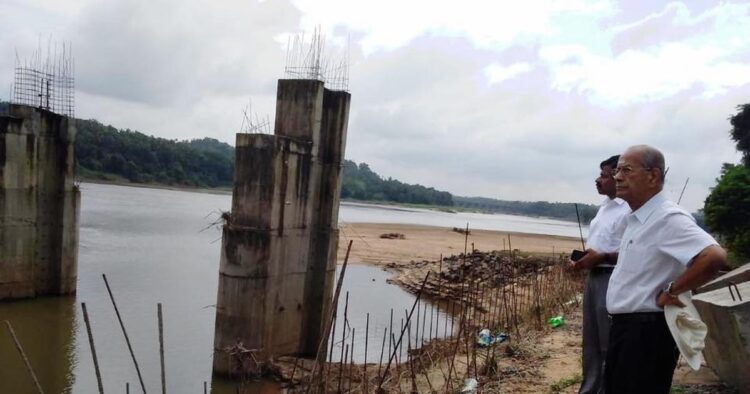E Sreedharan, known as the ‘Metro Man’ for his significant role in transforming urban transit systems in India, has taken a legal step by filing a public interest litigation (PIL) at the Kerala High Court. The litigation challenges the proposed construction of the Thiruvanaya Thavanur bridge across the Bharathapuzha River, emphasizing concerns over the potential disruption to Hindu religious sites and cultural heritage.
Sreedharan’s PIL is centered around the impact of the proposed bridge alignment on the sacred geography of the region. The bridge is set to span the Bharathapuzha River, dividing the Vishnu Temple at Thiruvanaya on the north bank from the Shiva and Brahma Temples at Thavanur on the south bank. These temples form a significant religious triad, deeply revered by the local Hindu community. The current bridge alignment, Sreedharan argues, would physically split this Holy Trinity, disrupting religious practices and diminishing the spiritual cohesion that binds these sites.
The Vishnu Temple at Thiruvanaya and the Shiva and Brahma Temples at Thavanur are integral to the spiritual landscape of Kerala. The Vishnu Temple, with its historic rituals and festivals and the temples at Thavanur, which are also prominent pilgrimage sites, are bound by centuries of religious tradition. The proposed bridge’s alignment threatens to sever this sacred connection, potentially hurting the sentiments of countless devotees.
Sreedharan’s petition further highlights that the current bridge alignment risks encroaching upon the samadhi of K Kelappan, a revered freedom fighter often hailed as the ‘Kerala Gandhi’. Kelappan’s Samadhi is a site of historical importance and cultural reverence, especially among the Hindu community. The proposed construction could undermine the sanctity of this site, adding to the religious and cultural concerns surrounding the project. The Bharathapuzha River, often referred to as ‘Dakshina Ganga’ or the Ganges of the South, holds immense spiritual value for Hindus in the region.

















Comments